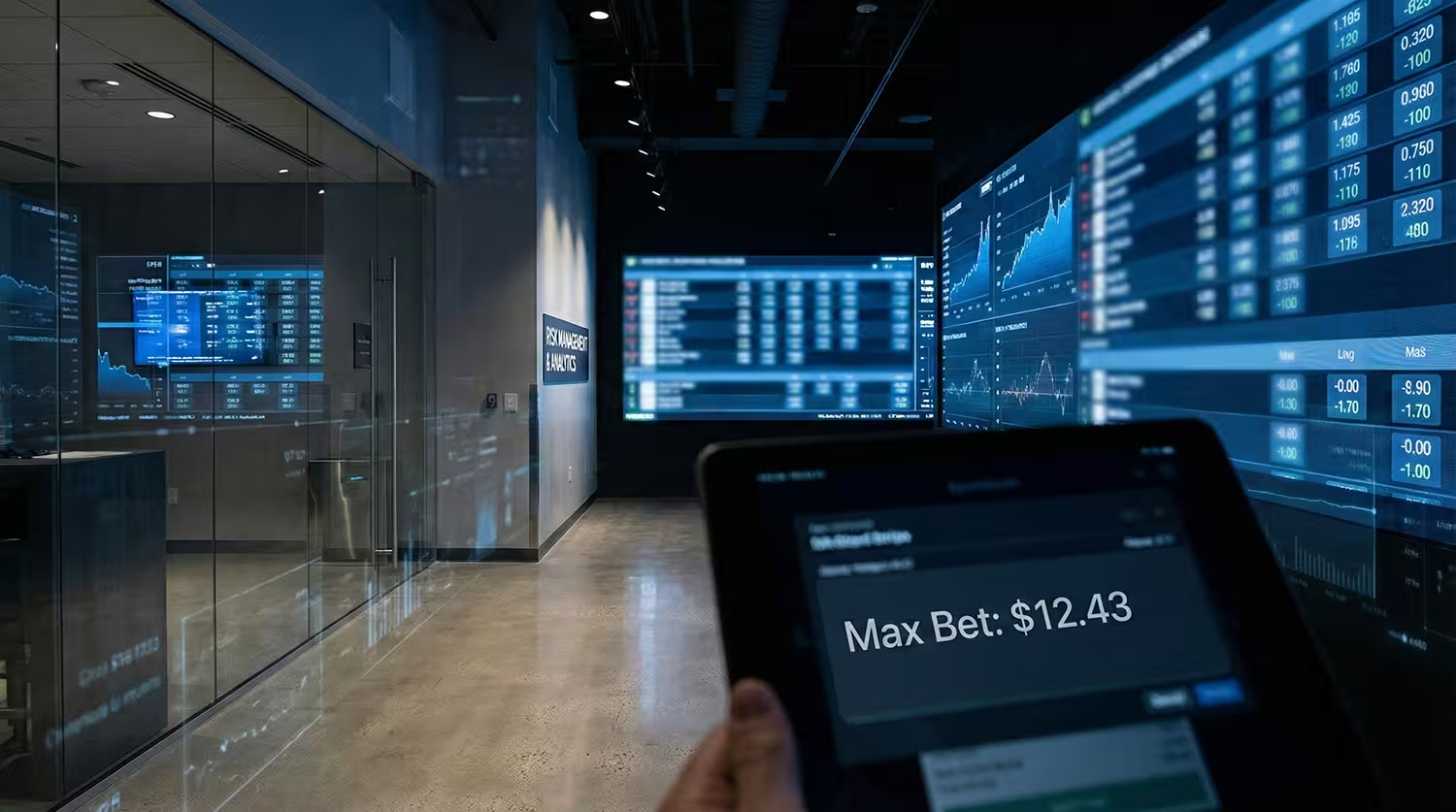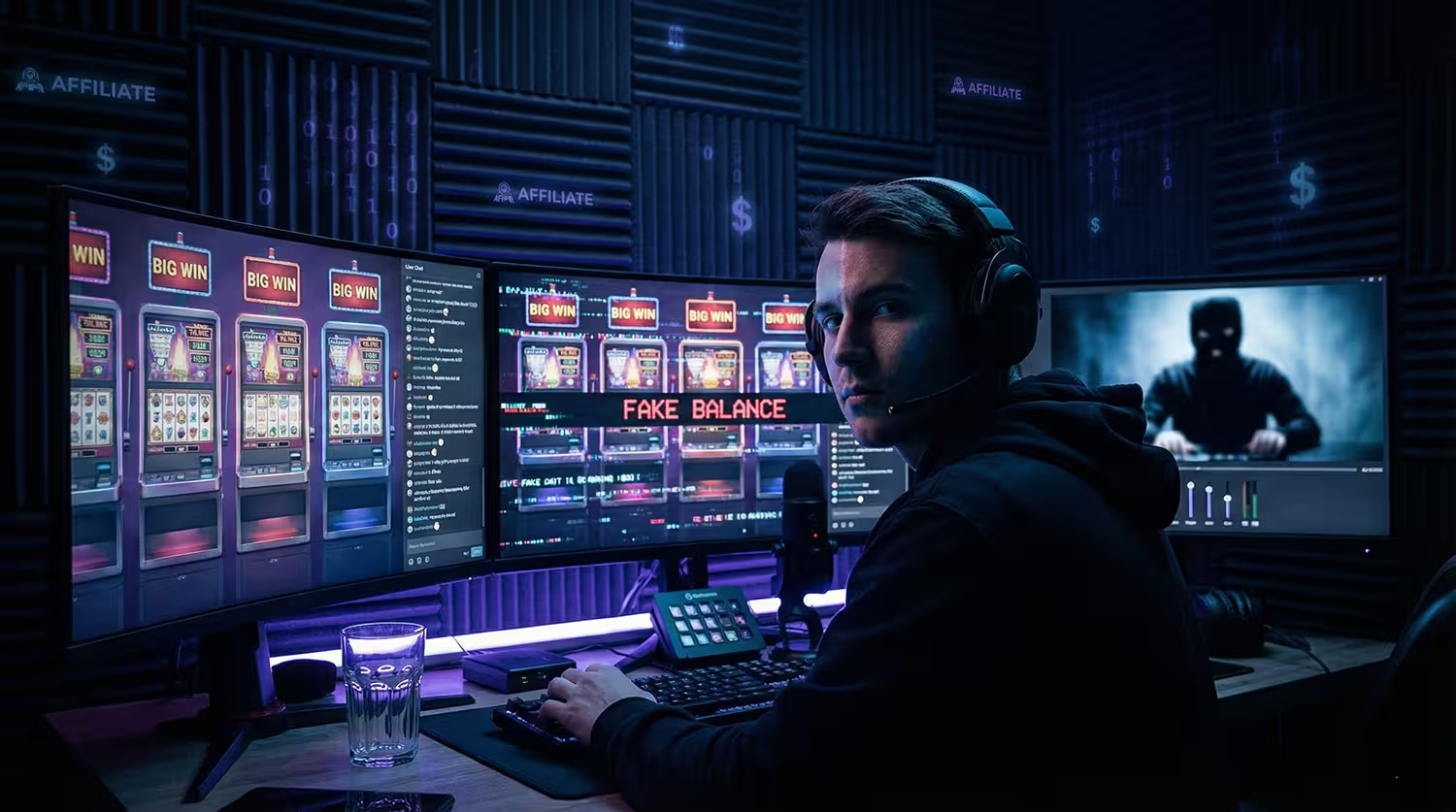How Casino Partnerships Work with Software Providers

Online casinos don’t run on mere luck alone—although that would make sense given what they are made for, wouldn’t it? But alas, it takes much more than luck to power all of the games we love to play. Behind all of the slots and virtual card tables, there’s a powerhouse of technology hard at work in the background. What is this tech we speak of? It’s the software providers that make the games, and they are building all of the tools that keep the industry propelling forward.
And the partnerships aren’t only about the big selections you find in game libraries—it also takes l licensing, the best security, and, of course, the amazing technology that players come back for again and again. But how exactly do casinos and providers work together to manage this feat? And why is this relationship so important for both sides of the equation?
If you’re curious about how it all goes down, we can tell you! We’ll cover what goes into the partnership and unpack it step by step. From how the partnerships are created to the impact they have on your fav gambling sites, you’ll get a super close look at the gears that are turning behind the screens!
What Are Casino Software Providers?
Online casinos wouldn’t (and couldn’t) exist without the technical brilliance of software providers. The companies design the games, platforms, and systems that players rely on for smooth and fun gameplay! From the latest slot releases to interactive live dealer tables, they are the engine that runs the online gambling world.
You can consider software providers like the creative and technical teams that make things work behind the scenes—they develop and supply the games you play and guarantee that every single spin, hand, or roll goes as planned. Their role isn’t solely about the creation of games—it’s also about the height of innovation, reliability, and making sure casinos can stay competitive in the market.
There are a lot of software providing industry leaders out there, but the ones below are the most notable:
- NetEnt: Known for their sleek slot designs and inventive gameplay.
- Microgaming: One of the oldest in the business, famous for its jackpot network.
- Evolution Gaming: The go-to for live dealer experiences that come pretty close to replicating real casinos.
- Playtech: Has an extensive selection of games across all casino categories.
- Pragmatic Play: Specializes in mobile-friendly slots and live games.
- IGT: A mix of online and land-based expertise with a really strong game library.
- Play’n GO: Pioneers in mobile-first games with really unique themes.
- Yggdrasil Gaming: Known for visually stunning slots with creative storytelling.
- Betsoft: Famous for their cinematic slot designs.
- Quickspin: Produces high-quality video slots focused on fun and engaging gameplay.
The companies above are moving the industry forward, and they set a high bar for both quality and innovation!
What Do They Create?
Software providers develop a host of products, and they are all made to meet different player preferences! The following are the games they are responsible for:

- Slots: From simple, classic games to more complex titles with unique features.
- Table Games: Digital takes on blackjack, roulette, poker, and more.
- Live Dealer Games: Streaming live casino action with real-time interaction.
- Progressive Jackpots: Games where the prize pool keeps growing until somebody wins.
- Mobile Gaming: Titles designed to run perfectly on both smartphones and tablets.
Why Do Casinos Partner with Software Providers?
Online casinos do seem to have it all together, but the truth is this: they all rely on their partnerships with the software providers to deliver the games that players love. The providers aren’t merely developers—they’re specialists in creating the experiences that make a casino platform competitive and popular. From blockbuster slots to live dealer setups, their expertise goes into everything you see and play!
But what exactly is in it for the casinos? Besides making sure that their game libraries are stocked, partnering with the providers is also a strategic move. It gives casinos access to specialized talent, saves time and money, guarantees that everything is running legally, and cements their rep with players. The following is a comprehensive look at why these types of partnerships matter and how they work!
Game development isn’t as easy as designing something fun and visually appealing and throwing it online. Software providers bring with them oodles of experience, deep knowledge of player preferences, and the technical know-how that’s needed to make the games that are both innovative and functional.
Companies like NetEnt, Microgaming, and Evolution Gaming employ massive teams that are dedicated to creating diverse and high-quality games. Slots aren’t simply spinning reels, oh no; some call for engaging storylines, immersive graphics, and seamless gameplay. Table games and live dealer setups demand even more precision to try to replicate the feel of a real, physical casino.
When gambling sites partner with specialized providers, they get access to top-tier content without the pressure of having to build it themselves. It’s a win-win situation: providers are able to focus on the creative and technical work while casinos can concentrate on offering the games to players!
The gambling industry operates under super strict rules that are designed to verify fairness and protect players. Meeting these regulations is a non-negotiable for casinos—and somewhat of a challenge. This is where the software providers come to the rescue.
Leading providers don’t just create the games; they make sure their products meet the legal requirements of every market where the casino operates. They work with independent testing agencies like eCOGRA or GLI to certify all of their games for fairness and reliability. They also design their platforms to integrate seamlessly with casino systems while staying in compliance with local laws.
By outsourcing this responsibility, casinos save a ton of time and steer clear of any legal danger. Plus, players always feel safer knowing that the games they’re playing are audited and verified.
Building in-house gaming software isn’t just expensive—it’s also risky! For a casino to develop its own games, it would need a huge upfront investment in software, hardware, and staff. Even then, there would be no guarantees the games would be received well in a really crowded market.
Partnering with software providers is a much smarter financial decision, as they are able to give casinos access to an established library of games, and it’s usually on a revenue-sharing model. This means that casinos can save on development costs while still offering a solid variety of content to players.
For smaller or newer casinos, this approach is even more important—instead of spending years building up a platform, they are able to hit the ground running with high-quality games that are provided by trusted names in the biz.
When players see the names that they know, like NetEnt, Playtech, or Evolution Gaming, on a casino site, they instantly feel confident about playing there. Well-known software providers are synonymous with fairness and quality, which means that their presence alone levels up a casino’s credibility.
Trust is everything in the online gambling world. Players want to know that the games they’re playing aren’t rigged and that payouts are legit, and a partnership with a respected provider reassures them of just that.
For casinos, it’s a basic trade-off: by partnering with big names, they can attract more players and keep them coming back. As time goes by, this trust translates into loyalty—a currency that’s absolutely priceless in such a competitive industry.
The Types of Partnerships Between Casinos and Providers
Online casinos are nothing without the partnerships they form with software providers. The relationships mold everything from the games you play to the features you use, and they come in a variety of forms. It could be pre-built platforms or exclusive content deals, but every kind of collaboration has a distinct purpose!
White-Label Solutions
Launching an online casino doesn’t happen because someone has a cool idea! The logistics—platform development, game integration, licensing—are huge hurdles for any newcomer, and that’s when they call on white-label solutions.
They are all-in-one packages that are offered by providers—it’s basically letting someone buy a “ready-to-go” online casino. It’s kind of like the ultimate starter kit: they’ll get pre-installed games, payment systems, user interfaces, and even customer support tools.
One of the biggest advantages is undoubtedly the speed. With white-label solutions, a casino can launch without spending months or even years on development. This is super appealing to smaller businesses or entrepreneurs who are looking to break into the gambling market without the resources of a major operator.
White-label solutions are really popular with providers like EveryMatrix or SoftSwiss, who specialize in delivering flexible setups. It’s a plug-and-play approach that makes it easier for new casinos to concentrate on attracting players rather than building a whole tech infrastructure.
Exclusive Partnerships
Sometimes, casinos go above and beyond the standard setup with the goal of being exclusive. These are the kind of deals where a provider creates games that are only available on a specific platform. The result of this? Unique games that you won’t find anywhere else!

Take Evolution Gaming as an example. Known for its live dealer games, Evolution has inked partnerships with casinos to develop custom-branded tables or exclusive variants of popular games like blackjack and roulette. The deals give the casino something distinctive to market, and that makes it more attractive to players who want something new.
On the slot side, collaborations for branded games are another solid example of exclusivity. If there is a slot game themed around a major movie or band—it’s not only a game; it’s a selling point. Casinos with exclusive content can bring in players who are looking for new and exciting games.
Multi-Provider Platforms
In the uber-competitive world of online gambling, giving players a big selection of games is a must. That’s why so many casinos partner with multiple software providers instead of simply relying on one.
Why? It’s all about the variety! Different providers excel in different areas—NetEnt is known for its visually stunning slots, Evolution is a boss in live dealer games, and Playtech has a strong mix of table games and slot options. A single provider can’t deliver it all, but a mix guarantees that a casino can cater to every kind of player.
Multi-provider platforms also mean that casinos are able to refresh their game libraries on the reg. By working with more than one provider, casinos can add new titles regularly, which keeps their games dynamic and appealing to both new and returning players.
Custom Game Development
For the casinos that really want to stand out in the gambling world, custom game development is the best way to go. It involves working closely with a software provider to create games that showcase the casino’s brand or theme.
Custom games are usually tied to specific promotions or events. As an example, a casino could launch an exclusive slot to celebrate its anniversary or create a game based on the player feedback. The games aren’t solely about exclusivity; they’re building a stronger connection with players by giving them something really unique.
This approach is super common with top-tier casinos that strive to leave a lasting impression. They don’t want to give players another game—they want to give them something that they’ll associate directly with that brand.
Each type of partnership between casinos and providers serves a different purpose, whether that’s speeding up a launch, creating a great feature, or simply adding some variety. By working together in these ways, both casinos and providers guarantee players have access to the best possible gaming experiences!
Main Components of a Casino-Software Provider Agreement
In the online casino industry, the collabs between casinos and software providers is an important puzzle piece for delivering engaging and seamless gameplay. The partnerships are governed by comprehensive agreements that outline the responsibilities and expectations of each party. Below, we’ll look at the main components of these types of agreements.
Licensing terms define how casinos can obtain the rights to use software developed by providers. The most common licensing models include the following:
– Revenue Sharing: The casino and provider split the revenue generated from the games. This model matches the interests of both parties, as the provider’s earnings depend on the casino’s success.
– Flat Fees: The casino pays a predetermined amount for the software, regardless of the revenue it generates. This approach is more predictable in costs but might not incentivize providers to optimize game performance.
Some agreements can be a combo of both models, requiring a flat fee upfront that is followed by ongoing revenue sharing.
Integrating games into a casino’s platform involves the following technical steps:
– API Integration: Providers supply Application Programming Interfaces (APIs) are how casinos are able to incorporate games into their platforms seamlessly. It’s a process that verifies that games function correctly and are accessible to players.
– Customization: Tailoring the game’s interface to match the casino’s branding and user experience standards is super important for a cohesive look and feel.
– Testing: Before anything goes live, integrated games undergo rigorous testing to identify and resolve any issues to guarantee a smooth player experience.
Ongoing support and maintenance are also vital for the optimal performance of casino games, and they include the following:
– Regular Updates: Providers release updates to improve game features, fix bugs, and improve security. The updates keep the gaming experience new and secure.
– Technical Support: A dedicated support team addresses any technical issues that might pop up, which means minimizing downtime and maintaining player satisfaction.
– Compliance Monitoring: As gambling regulations change, providers help casinos to adapt to any new requirements, and that ensures continuous compliance.
Negotiating the complicated landscape of gambling regulations is a joint responsibility that requires the steps below:
– Certification: Providers guarantee that their games meet the standards set by regulatory bodies in various jurisdictions and obtain necessary certifications.
– Fair Play Assurance: Implementing Random Number Generators (RNGs) and other fairness measures guarantees unbiased game outcomes, which builds player trust.
– Data Protection: Compliance with data protection laws, like the General Data Protection Regulation (GDPR), verifies the safeguarding of player information.
By meticulously defining these components, casino-software provider agreements establish a framework that promotes a successful and compliant partnership and ultimately improves players’ gaming experience!
Benefits of Strong Casino-Provider Relationships
The partnerships between casinos and software providers are so much more than mere business deals—they’re the basis of the industry’s success. The relationships drive growth, innovation, and better experiences for all who are involved. Below is a better look at how each side benefits when they work together.
For Casinos
When casinos team up with reputable providers, they are getting more than games—they are unlocking the tools that will attract and retain players and making a name for themselves in a super-crowded market.
- High-Quality Games Attract More Players: Players will flock to casinos that offer well-designed, exciting games. A lineup of titles from top providers creates trust and keeps players coming back to a platform.
- Improved User Experience Via Seamless Software: Smooth-running games and reliable platforms mean happier players who will spend more time—and money—at a casino. Seamless integration from providers makes sure that everything works without a hitch.
For Providers
And for the software providers, strong casino partnerships are a launchpad for growth and visibility—they get access to bigger audiences and steady income streams.
- Exposure to Larger Audiences: By partnering with established casinos, providers get their games in front of thousands—even millions—of players, and that improves both their reputation and the demand for their games.
- Revenue Growth from Licensing Deals: Licensing agreements offer providers a consistent revenue stream, rewarding them for the success of their games and encouraging further innovation.
Challenges in Casino-Provider Partnerships
Casino and software provider partnerships may appear to be seamless on the surface, but behind the screens, they’re anything but simple. Yes, the collaborations drive the online gambling industry forward, but they also come with a fair share of obstacles. From navigating complex regulations to handling any technical hiccups and financial disagreements, there’s a lot to manage. Below, we unpack some of the most common challenges these partnerships are up against.
Regulatory Issues
Operating in multiple regions means dealing with a lot of laws that rarely line up. What do we mean? Well, a game that is approved in one jurisdiction might be flagged in another, and that forces providers to tweak or re-certify their software.
For casinos, this can delay launches or even restrict game availability. The stakes are super high because non-compliance can mean fines, loss of licenses, or damage to a platform’s reputation.
Staying well ahead of the ever-changing regulations takes constant and vigilant monitoring, collaboration with legal experts, and a complete understanding of each region’s requirements. Honestly, it’s a juggling act that can put a strain on even the strongest partnerships.
Technical Glitches
Nothing, and we mean nothing, frustrates players more than encountering bugs, game crashes, or downtime during gameplay—there is real money at stake, after all! These kinds of technical issues not only disrupt the player experience but also impact a casino’s bottom line. When systems fail, casinos are in danger of losing players to competitors who have smoother, uninterrupted gaming.
Glitches can come from server overloads, software compatibility issues, or errors during game updates. Resolving these problems takes rapid response teams and ongoing maintenance agreements to make sure that any issues are identified and fixed before they escalate.
Revenue Disputes
Money can complicate even the best relationships. Licensing agreements usually involve revenue-sharing models, flat fees, or hybrid structures, but disagreements over performance metrics or payment terms can cause some tension. For instance, casinos might feel like a provider’s games aren’t generating enough revenue, and providers might argue for higher cuts based on operational costs.
Without clear, fair terms and open communication, disputes can escalate really quickly, which could sour a profitable partnership. Flexibility and renegotiation are always necessary to keep both parties satisfied.
Future Trends in Casino-Software Provider Partnerships
The gambling industry thrives on innovation, and casino-software provider partnerships are no exception. As emerging technologies like AI, blockchain, and VR evolve, they’re set to change not just the games but also how these collaborations work. The advancements are changing the foundation of trust, efficiency, and creativity that all of these partnerships rely on.
Artificial Intelligence: Smarter Partnerships
AI is already making a name for itself in the gambling world, but the role it has in partnerships goes a lot deeper than predictive algorithms or personalized game recommendations. For casinos and software providers, AI is becoming a tool for refining their collaboration.
AI systems are able to analyze a player’s behavior across different regions and feed that data back to providers. The feedback loop can help developers create more targeted games while also allowing casinos to fine-tune their game offerings based on real-time insights. AI also streamlines backend operations like fraud detection and compliance checks, areas where partnerships can experience some friction.
For future partnerships, AI could mean fewer trial-and-error approaches and more precise, data-driven decisions on what players want and need.
Blockchain: Redefining Trust
Trust is a cornerstone of casino-software partnerships, and blockchain technology could take it to another level. Traditionally, partnerships have relied on extensive contracts and audits to verify transparency, especially in areas like revenue sharing or licensing agreements. Blockchain introduces a way to automate that transparency.
Smart contracts, for example, are able to ensure automatic payments between casinos and providers based on the agreed performance metrics. Both parties can access immutable records of transactions, which will decrease disputes and build a more solid foundation for their relationship.
On the player front, blockchain-enabled games and payment systems add credibility, making casinos more appealing to a techier crowd. By adopting blockchain, partnerships could move toward a model that minimizes disputes and maximizes efficiency!
Virtual Reality: Collaboration Beyond the Screen
VR has been talked about in gaming before, but its potential for transforming casino partnerships is just starting to emerge. Not only would it create immersive player experiences, VR would open up new ways for providers and casinos to collaborate creatively.
A provider could design a fully VR-compatible casino for an operator—a virtual environment where players can walk into digital lobbies, interact with other users, and join live dealer games. The bespoke VR setups would take way more collaboration than traditional game development, as it takes a combo of technical expertise with the casino’s branding and goals.
As VR adoption grows, partnerships will shift from merely providing games to creating entire virtual ecosystems. It’s a level of collaboration that could totally redefine what an online casino looks and feels like.
Mobile-First Gaming
As mobile device usage continues to surge, there’s a growing emphasis on mobile-first gaming experiences. Casinos and software providers are prioritizing the development of games that are optimized for smartphones and tablets so they can have seamless play on the move. The shift necessitates super close collaboration to deliver high-quality, responsive games that meet players’ expectations.
Social Gaming Integration
The incorporation of social features into online gambling platforms is also gaining a lot of traction. Elements like chat rooms, leaderboards, and multiplayer competitions are all improving player engagement and building a sense of community. The features take coordinated efforts between casinos and software providers to implement them in a successful way.
Cloud Gaming
The adoption of cloud gaming technology allows players to access games instantly without any extensive downloads. It’s an advancement that enables casinos to offer an array of games with lower latency, and that improves the user experience. Implementing cloud gaming solutions takes strategic partnerships between casinos and software providers to guarantee optimal performance.
What’s Next?
While AI, blockchain, and VR are the technologies everyone’s watching, the key to their success lies in how casinos and providers leverage them together. The trends aren’t only about keeping up with the market—they’re about rethinking how partnerships operate at every level, from innovation to execution!
Conclusion
Casino-software provider partnerships are the secret sauce that is behind everything that makes online gambling fun—without them, where would gambling sites be? We don’t know, and we don’t really want to know!
Below is a brief refresher on why the collaborations matter so much:
- They bring high-quality, innovative games to players.
- They guarantee seamless user experiences through technical excellence.
- They build mutual growth for casinos and software providers via shared expertise and revenue.
- They enable compliance with the always-changing gambling regulations, and that verifies that you are playing on fair and trustworthy platforms.
The next time you’re playing slots or betting on a poker hand at a live dealer table, remember to appreciate and pay homage to the teamwork that is at work behind the scenes. Those partnerships aren’t only powering the games—they’re powering your good time!

Alyssa contributes sportsbook/online casino reviews, but she also stays on top of any industry news, precisely that of the sports betting market. She’s been an avid sports bettor for many years and has experienced success in growing her bankroll by striking when the iron was hot. In particular, she loves betting on football and basketball at the professional and college levels.








